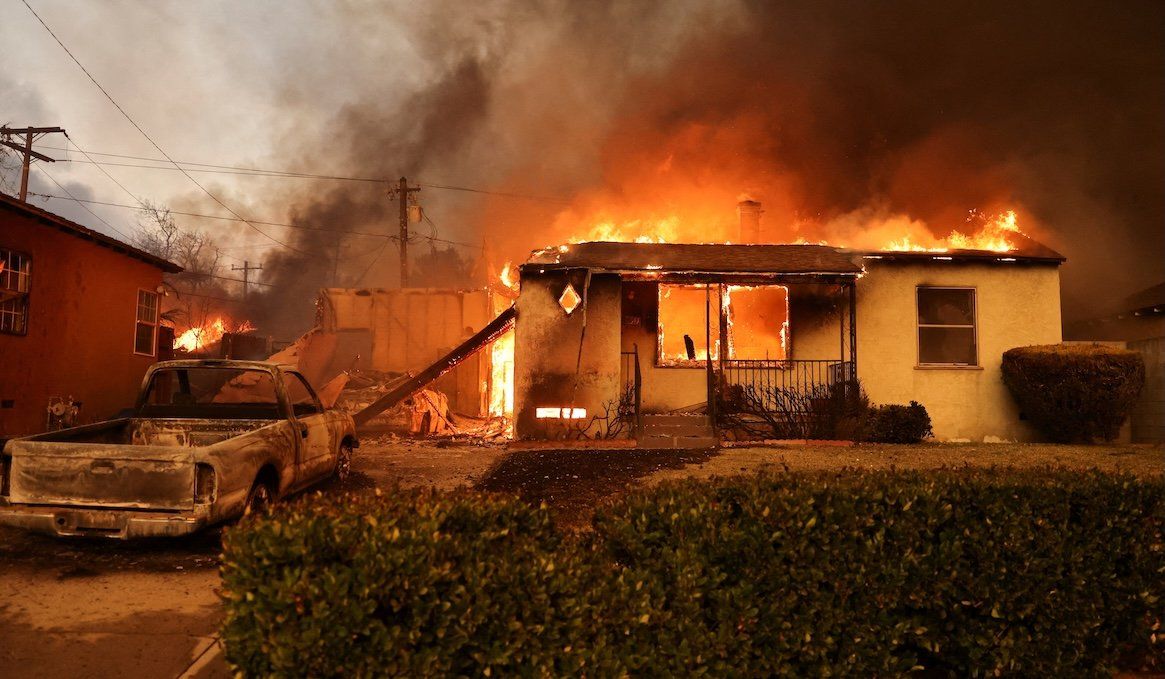As wildfires scorched Los Angeles for a second day on Wednesday, hurricane-strength winds and limited water supplies complicated efforts to contain the flames. The three main fires – in the Pacific Palisades, the Pasadena area, and the rural San Fernando Valley – have burned thousands of acres, decimated hundreds of buildings, killed two people, and placed tens of thousands of people under evacuation orders.
Overnight, all the fire hydrants in the affluent Pacific Palisades neighborhood went dry, and officials are raising alarm bells that the city’s water system is outdated and ill-equipped to keep up with climate change, which is not only making fires more frequent in LA but also spreading them faster.
President Joe Biden is sending money to the region, thanks to the $100 billion in disaster aid passed by Congress before Christmas, $29 billion of which went to FEMA. Incoming President Donald Trump, meanwhile, accused Gov. Gavin Newsom on Wednesday of blocking water to the region “to protect an essentially worthless fish called a smelt, by giving it less water.” Trump appears to be referring to rules adjusting water allocations for cities and farms to protect areas where populations in Northern California where fish populations are depleting. But most of LA’s water is not imported from that region; it comes from groundwater and the aqueduct that runs east of the Sierra Nevada.
In the past, Trump has hesitated to give aid to Democratic-leaning states, and he has been critical of FEMA – falsely accusing the agency of misusing funds for illegal immigrants after Hurricane Helene. While he has not yet announced his pick to run the agency, its fate, and the fate of disaster-prone blue-states, could be fraught for the next four years.
